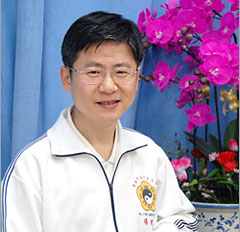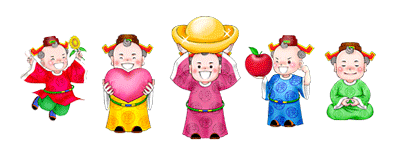The New Life of a Once-Solitary Doctor
Jian Yi Yang 2011-11-04

Thinking back, I remember in my childhood, whenever there were guests visiting us, my parents would ask me to greet them hospitably and to display my best manners. However, when I wasn't acquainted with the visitors, I would be too self-conscious to join them. I would even hide in my room, thinking, “They are my parents’ guests, not mine. Why should I meet them?” In the eyes of my parents, I had been a timid child, often too shy to express myself. Despite that, learning at school had been easy for me, and I was also capable of solving the problems I encountered in my daily life on my own; rarely did I need help from my family or friends. As a result, I led a rather solitary existence that included few social connections.
For several decades, I believed that it was best to simply mind my own business and that socializing with people other than my close friends was a waste of time and money. After I graduated from medical school, I applied yearly for a job at that school but was rejected twice in a row. When one of my senior classmates learned of this, he asked me, “Why didn’t you ask us for advice on how best to act during an interview?” It was like a wake-up call. I suddenly realized that I had appeared arrogant and spoke bluntly during the interview and that I had said something which offended the professors; therefore, naturally I didn't get the job. After becoming a doctor, I rarely met any coworkers whom I could develop close friendships with; and most of the nurses thought that I was serious and egocentric. No one would initiate a conversation with me.
A few years later, I started to work in a clinic, which had several other affiliated clinics. Two weeks before my contract with the clinic was to expire, I was stunned to learn that I was not going to get a renewal of the contract. Since I had not made any serious mistakes at work, I asked my boss the reason. I was told that someone had gone behind my back to report something unfavorable about me to my boss and that my boss had sent someone to give me some pointers about my job; however, no one had ever told me anything about that before.
After clarifying what had happened, my boss decided to keep me employed, but my position as the director of this clinic had already been assigned to someone else. Therefore, he assigned me to another clinic of his in a different county.
When I signed the contract to be the director of that clinic, I asked what my responsibilities were. I was told that the clinic was running under a good plan so that there was nothing that I really had to do, and that I was the “director” in title only. Keeping these guidelines in mind, I tried not to raise objections, even when things that I disliked or disagreed with happened. It never entered my mind that I should report them to my boss or ask for second opinions. Additionally, I never attended dinner parties held by the clinic. I believed my job was to take care of my patients, and it was not necessary for me to spend time chatting with my young subordinates.
Later on, I realized that if I had communicated with my boss regularly, asking his opinions about new medical news and clinic management strategies, I could have avoided or resolved others’ misunderstandings of me. From this experience, I learned that I should not be so self-centered. I also realized that I had misunderstood the meaning of “letting nature take its course.” I re-examined myself and pondered over my Shifu’s teaching about “letting nature take its course” in my years of qigong practice at Tai Ji Men. I thought he meant that people should always do their best to communicate with others and improve every situation, and once they have done their best, they should let it go no matter what the results are.
I had learned my lesson; I was determined to change my behavior. I would initiate talks with my subordinates, chat or joke with them and sometimes even bring snacks to share with them. I found that everything was different afterwards. “Dr. Yang, would you consider spending more hours at the clinic. You are easygoing, and you don’t cause me stress or stomachaches.” One day, a nurse asked me directly, “Why are many doctors cocky and acting as if they are all-important?” I replied, “That is because they tend to be self-centered and very subjective.” The nurse then asked me, “What do you think of yourself?” I answered jokingly, “I am one of them.” My reply made the nurses laugh hard.
I was once a solitary doctor. Although I consider myself a kind-hearted person, the fact that I have managed to change my mindset and the long-standing weaknesses in my disposition in my late forties is something that I would never have imagined. With a career as a doctor, I have no financial worries, but there are many desirable things in life that cannot be obtained with money. I feel very fortunate to have practiced qigong at Tai Ji Men, which is like a big family. I have not only restored my health through practicing qigong, but also obtained wisdom and skills in living a harmonious life from my Shifu’s teaching and the heart-felt sharing of other members of the family. Now all aspects of my work and daily life are more fulfilling and meaningful.



